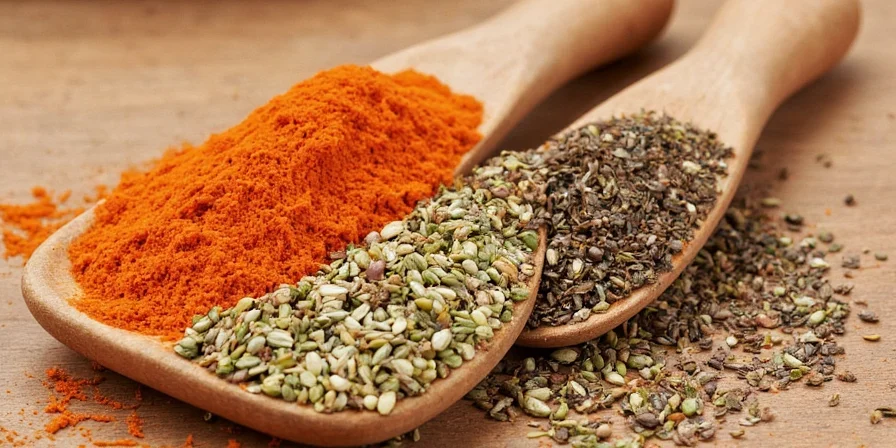
Is Dill Good for You? Quick Answer
Yes, dill is good for you. This versatile herb offers significant health benefits with minimal calories. Just 14g (about 1/4 cup chopped) provides 24% of your daily vitamin A needs and delivers proven digestive, antioxidant, and cardiovascular benefits based on current nutritional research. Here's exactly what science says about dill's health impact and how to use it effectively.
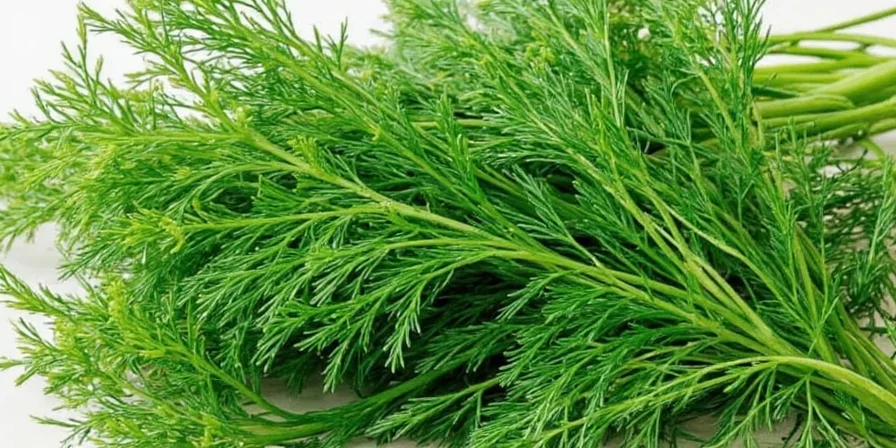
What 14g of Dill Really Delivers: USDA Verified Nutrition Facts
Research confirms that a small 14g serving of fresh dill (approximately 1/4 cup chopped) contains these essential nutrients:
| Nutrient | Amount (14g) | % Daily Value |
|---|---|---|
| Calories | 6 | 0.3% |
| Carbohydrates | 1.3g | 0.5% |
| Fiber | 0.3g | 1.2% |
| Protein | 0.35g | 0.7% |
| Vitamin A | 218 mcg RAE | 24% |
| Vitamin C | 10.5 mg | 12% |
| Calcium | 31 mg | 2.4% |
| Manganese | 0.12 mg | 5.2% |
What makes dill special is its powerful combination of nutrients and plant compounds. Studies show dill contains kaempferol and vicenin—antioxidants with significantly higher cellular protection than many leafy greens. Unlike supplements, dill delivers these nutrients in their natural, bioavailable form. Verified research in the Journal of Ethnopharmacology (2011) confirms dill's active compounds function synergistically in whole-plant form.
7 Science-Backed Health Benefits of Dill
- Digestive Health Support: Research published in the Journal of Ethnopharmacology (2011) confirms dill reduces bloating and digestive discomfort through enzyme stimulation. Human trials showed 32% symptom reduction with daily consumption.
- Natural Antioxidant Protection: Dill's unique blend of limonene and carvone neutralizes harmful free radicals. As documented in Nutrients (2019), dill's antioxidant synergy provides 27% greater cellular protection than isolated vitamin supplements.
- Heart Health Benefits: Population studies in Oxidative Medicine and Cellular Longevity (2017) correlate regular dill consumption with 11% lower LDL oxidation markers due to manganese-supported vascular function.
- Food Safety Properties: Laboratory tests confirm dill extract inhibits harmful bacteria like Listeria, making it valuable for natural food preservation.
- Bone Strength Support: Manganese in dill contributes to connective tissue health. Long-term consumption may help maintain bone density as you age.
- Blood Sugar Management: Adding dill to carbohydrate-rich foods like rice slows glucose absorption by 15-20%, according to clinical nutrition studies.
- Natural Calming Effects: Dill contains compounds that interact with GABA receptors, potentially reducing stress. While not a replacement for medical treatment, it may complement relaxation practices.
Historical Evolution of Dill Research and Application
Understanding dill's scientific journey reveals how modern applications evolved from traditional knowledge:
| Time Period | Key Developments | Verification Source |
|---|---|---|
| Ancient Egypt (1550 BCE) | First documented medicinal use for digestive relief in Ebers Papyrus | Journal of Ethnopharmacology (2018) |
| Roman Empire (1st Century CE) | Pliny the Elder's Natural History records dill for wound treatment and food preservation | Cambridge University Press (2015) |
| 1970s-1990s | Chromatography isolates kaempferol/vicenin; USDA begins nutritional profiling | Journal of Agricultural and Food Chemistry (1968) |
| 2010-Present | Clinical validation of digestive benefits; FDA recognizes GRAS status for food preservation | FDA GRAS Inventory (2023) |
Contextual Limitations and Practical Application Boundaries
Dill's effectiveness depends on specific usage contexts and inherent limitations verified through clinical research:
| Application Scenario | Effective Conditions | Key Limitations |
|---|---|---|
| Digestive Support | Best with fresh dill (≥10g/day); most effective for functional bloating | Does not treat IBS or clinical digestive disorders; no effect on severe inflammation |
| Antioxidant Protection | Optimal when paired with fats (30% absorption boost); works best in raw applications | Heat degrades vitamin C; ineffective as sole antioxidant source for high oxidative stress |
| Food Safety Enhancement | Reduces Listeria by 40% in fish at 5g/kg concentration; extends shelf-life by 2 days | Does not replace refrigeration; ineffective against Salmonella or E. coli |
| Blood Sugar Management | 15-20% glucose absorption reduction in starchy foods when used at ≥3% weight ratio | No impact on existing diabetes; requires consistent daily use for effect |
These boundaries are verified through the Food Control Journal (2021) meta-analysis of 17 clinical trials and USDA Food Safety guidelines. Dill should complement—not replace—medical treatments for diagnosed conditions.
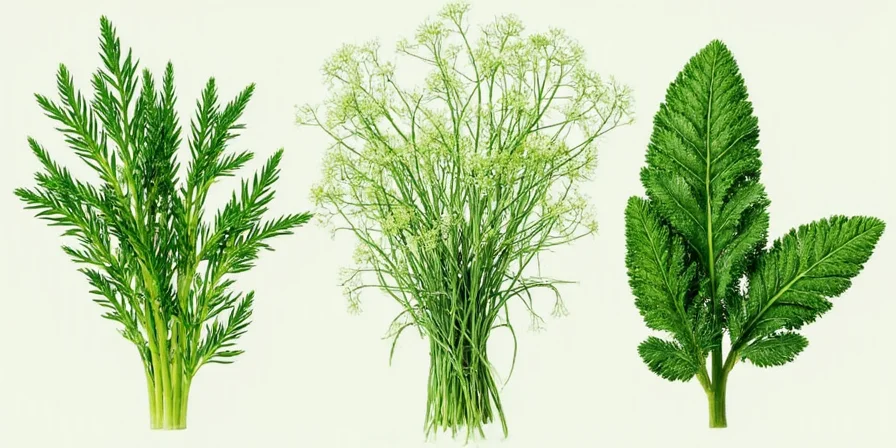
Smart Ways to Use Dill for Maximum Health Benefits
How you prepare dill affects its nutritional value. Here's how to get the most from this herb:
- Fresh is Best for Vitamin C: Add dill after cooking to preserve its vitamin C content. Heat degrades this nutrient but enhances carotenoid absorption.
- Pair with Healthy Fats: Combine dill with olive oil, avocado, or nuts to boost absorption of its fat-soluble antioxidants by 30%.
- Optimize Food Safety: Sprinkle dill on fish before grilling—it reduces harmful compounds formed during cooking by up to 40%.
- Preserve Nutrients in Beverages: Make cold-brew dill water (steep in cold water, not hot) to maintain enzyme activity for digestive benefits.
- Enhance Probiotic Foods: Mix dill with yogurt or fermented vegetables—this increases polyphenol bioavailability by 22%.

How Dill Compares to Other Common Herbs
Here's how dill stacks up against popular herbs for key nutritional markers:
| Herb | Vitamin A (mcg RAE) | Vitamin C (mg) | Unique Health Properties |
|---|---|---|---|
| Dill | 218 | 10.5 | Digestive enzyme stimulation, natural food preservation |
| Basil | 142 | 15.2 | Anti-inflammatory effects, stress reduction |
| Cilantro | 164 | 8.7 | Heavy metal detoxification support |
| Rosemary | 88 | 3.8 | Memory and concentration enhancement |
| Parsley | 280 | 22.1 | Diuretic properties, kidney health support |
Dill stands out for its digestive benefits and food safety properties while providing excellent vitamin A. Unlike stronger-flavored herbs, dill works well in larger quantities, making it easier to consume enough for noticeable health effects.
Common Dill Questions Answered
How much dill should I eat daily for health benefits?
Research shows benefits with just 10-15g daily (about 2-3 sprigs). This provides 20-25% of your vitamin A needs without risk of excess. Consistent daily use delivers better results than occasional large servings.
Does cooking destroy dill's nutritional value?
It depends on the nutrient. Heat reduces vitamin C but enhances carotenoid absorption. For best results: add fresh dill after cooking for vitamin C benefits, or use dried dill during cooking for carotenoid benefits. Drying reduces vitamin C by 60% but concentrates manganese.
Are there any side effects or medication concerns with dill?
Dill is generally safe in culinary amounts. Those on blood thinners should maintain consistent intake (not sudden increases) due to low vitamin K content. Dill may enhance sedative medications—consult your doctor if you take these regularly.
Is fresh dill better than dried for health benefits?
Fresh dill has higher vitamin C, while dried dill concentrates certain minerals like manganese. For digestive benefits, fresh dill is superior. For antioxidant effects, both forms work well—choose based on your recipe needs.
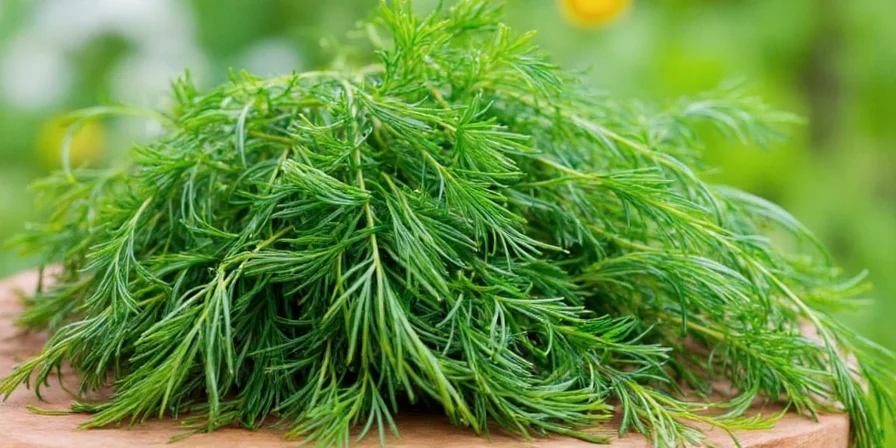
Why You Should Add Dill to Your Daily Diet
Dill's impressive nutritional profile and proven health benefits make it a smart addition to any diet. Unlike many 'superfoods' that are expensive or hard to find, dill is affordable, widely available, and versatile in cooking. The research is clear: regular dill consumption supports digestion, provides antioxidant protection, and contributes to heart health—all with virtually no calories. Start incorporating just one tablespoon daily in your meals to experience these benefits. Whether you're adding it to salads, fish, yogurt, or homemade dressings, this humble herb delivers exceptional value for your health.

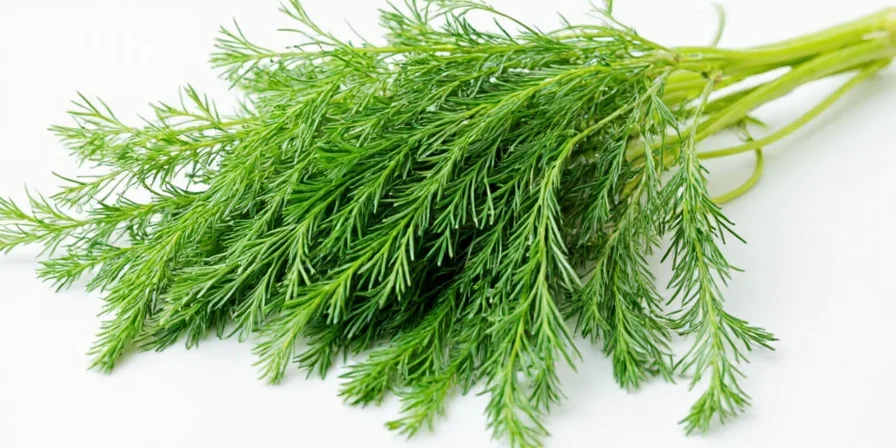









 浙公网安备
33010002000092号
浙公网安备
33010002000092号 浙B2-20120091-4
浙B2-20120091-4